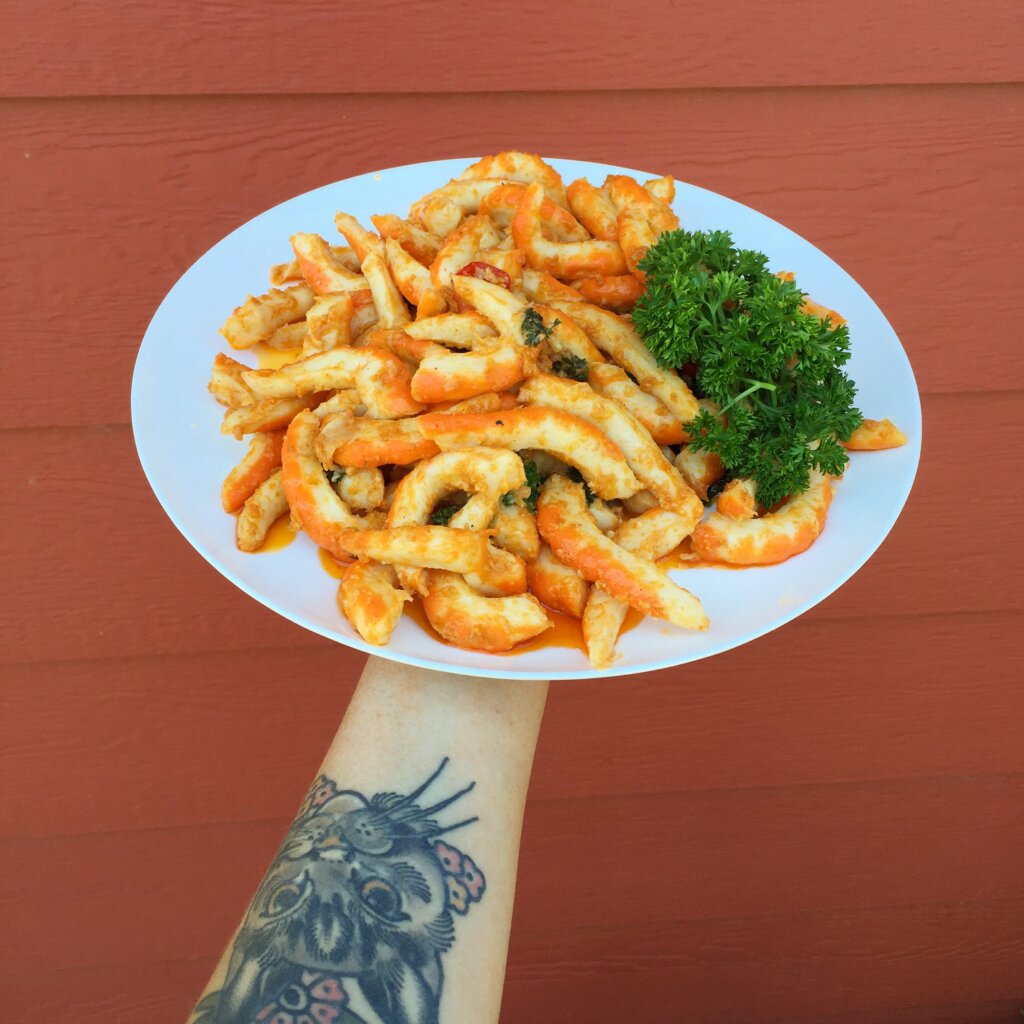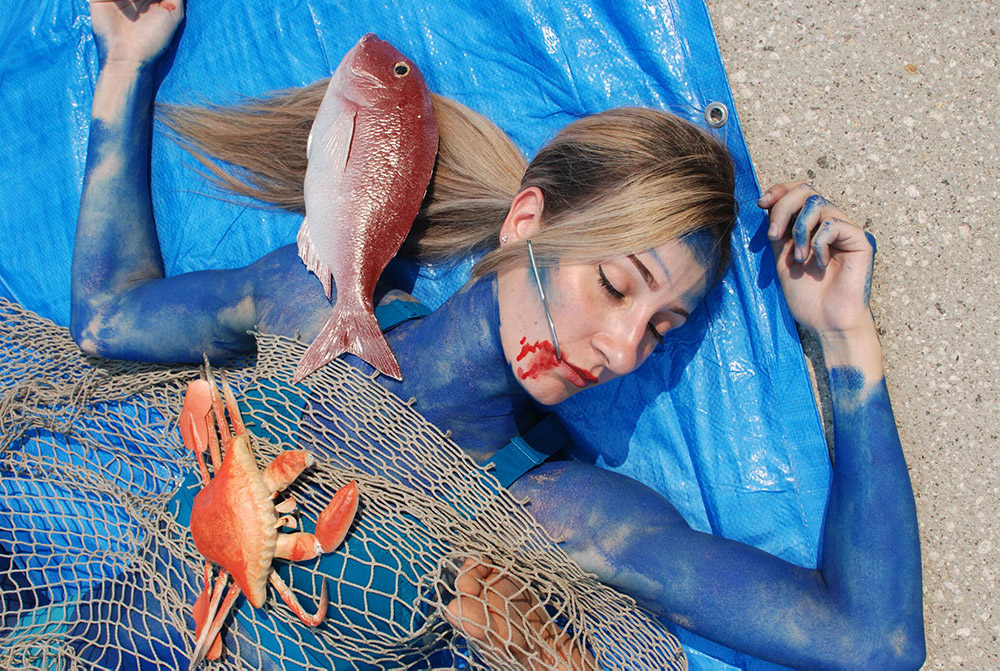
Netted ‘Dead Fish’ in Sydney Protest Christmas Seafood
Wearing blue body paint and wrapped in fish netting, a group of PETA members took to the Barangaroo Reserve harbour foreshore in Sydney ahead of the biggest seafood sale of the year to ask people to consider who is on their plate this Christmas.
The mass slaughter and consumption of sea animals stand in opposition to the meaning of Christmas, yet millions of aquatic animals are killed for Australian festivities. The Sydney Fish Market even has a 36-hour “festive frenzy” – last year, 700 tonnes of fish were killed and sold during it.
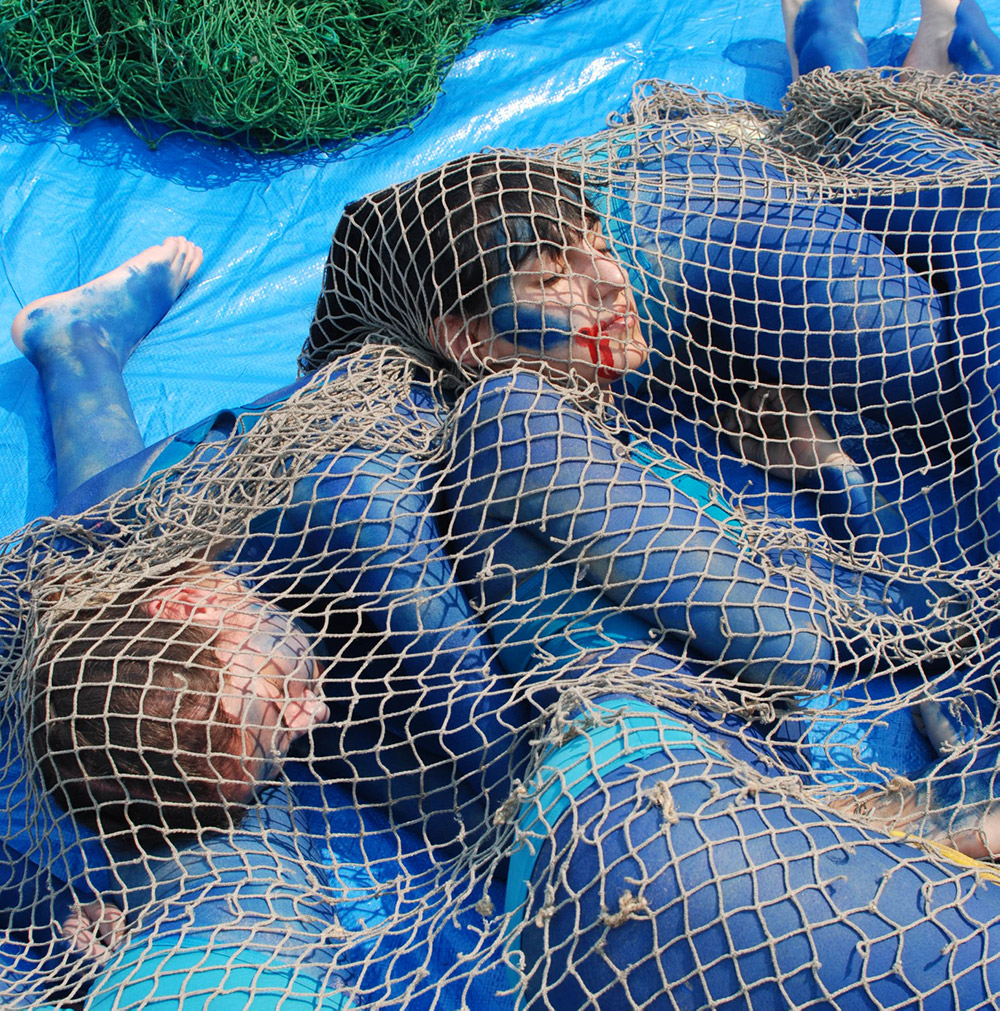
As humans, we instinctively feel compassion and empathy for animals, but we’re taught that it’s OK to kill and eat some of them – especially those who look very different from us – without a second thought as to who they are as individuals.
A specialist in fish behaviour from Macquarie University in New South Wales, Dr Culum Brown, says, “Fish are more intelligent than they appear. In many areas, such as memory, their cognitive powers match or exceed those of ‘higher’ vertebrates including non-human primates.”
And scientists agree that fish feel pain and suffer just as we and other animals do – a conclusion hardly surprising to anyone who has seen a fish struggling and fighting for their life when pulled from the water.

Fishers toss the fish they’ve caught into piles of ice on boat decks, where they slowly asphyxiate, freeze, or get crushed to death – horribly cruel and drawn-out ways to die. Scientists estimate that it can take up to 15 minutes for them to lose consciousness. The gills of others are cut or their throats and stomachs are slashed open while they’re still alive.
Those who are pulled up from deep waters often suffer from rapid decompression, which can cause their eyes to pop out and force their internal organs out through their mouths. And in catch-and-release fishing, up to 43% of fish don’t survive the trauma of being impaled with a hook and hoisted out of their natural environment.
Meanwhile, farmed fish spend their lives in cramped, filthy enclosures and commonly suffer from parasite infections, diseases, and injuries.
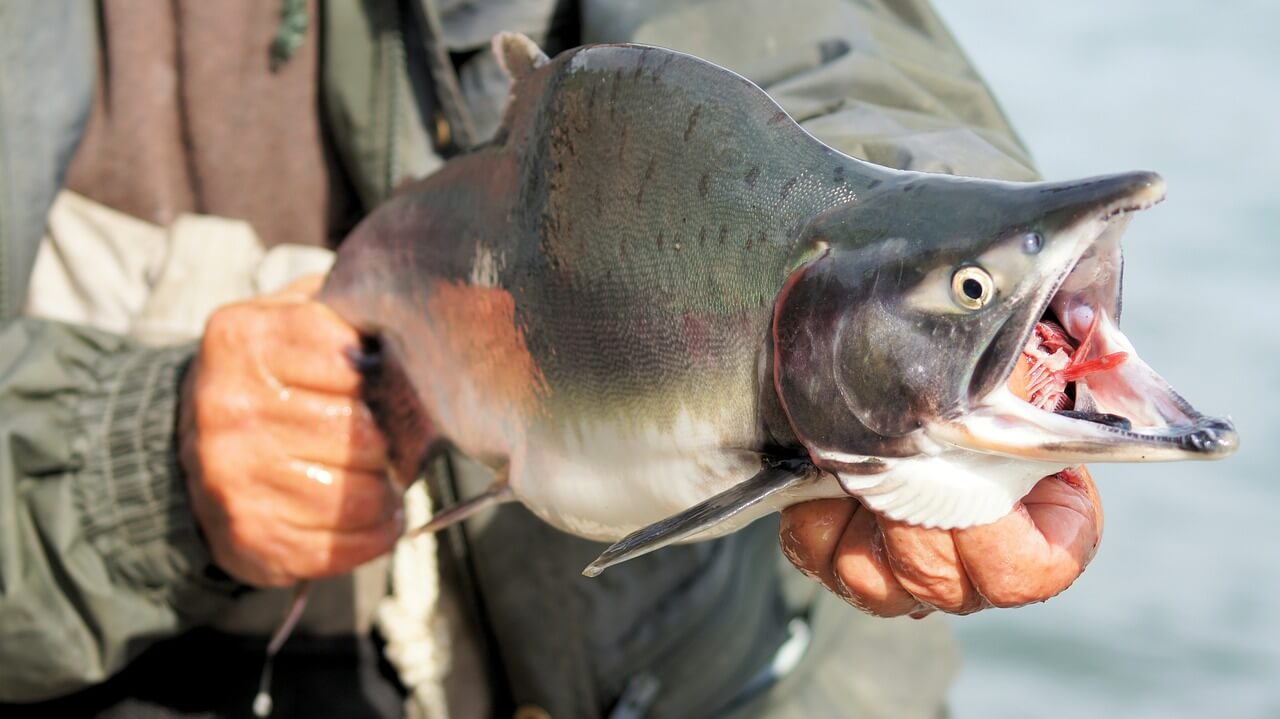
There’s also a grave environmental cost associated with humans’ appetite for fish and seafood: fishing vessels are decimating the world’s oceans, leaving them empty, lifeless, and on the brink of ecological collapse. Massive trawlers with nets the size of football fields destroy coral and marine plants on the seabed and scoop up all life in their path – including dolphins, turtles, and seals.
In addition, there’s a huge 80,000-tonne floating patch of garbage in the Pacific Ocean, and 46% of the large items of debris in it is made up of fishing gear, including nets.
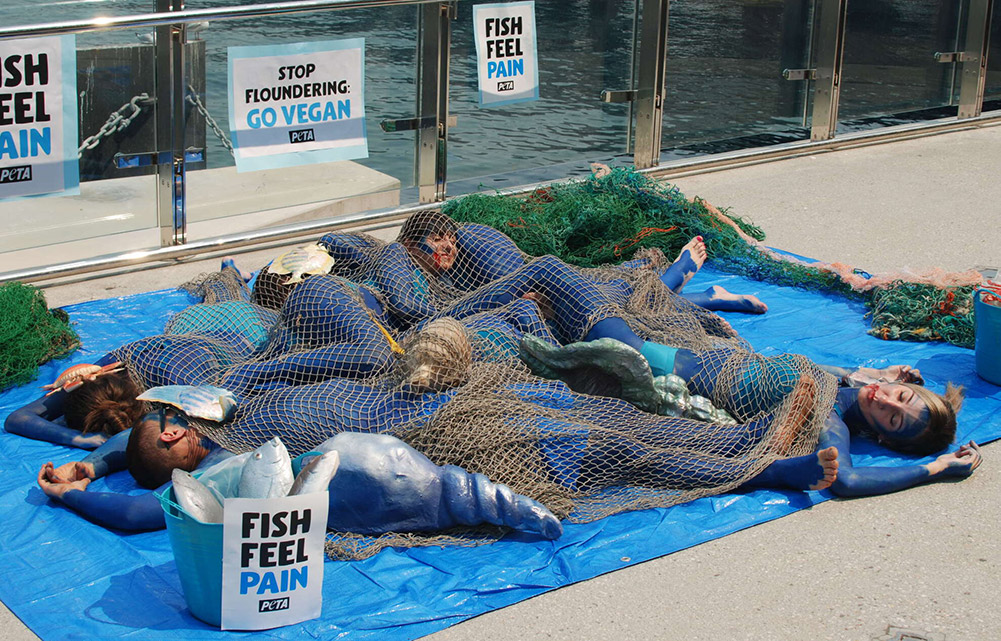
Eating sea animals is not sustainable or ethical, so please leave them off your shopping list this Christmas!
There are so many delicious vegan seafood options available that don’t require you to step foot in a stinky market full of corpses on ice. Try some of those instead and extend your goodwill to all animals during this festive season.
Animals Are Suffering in Laboratories – Help Save Them Now

